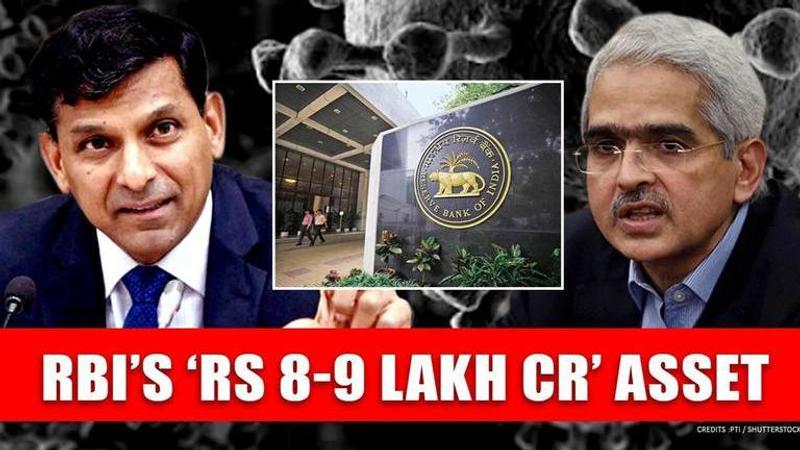Published 09:31 IST, April 11th 2020
Raghuram Rajan tells RBI to leverage its 'Rs 8-9 lakh crore' capital against Coronavirus
Former RBI Governor Raghuram Rajan has spoken in detail about the Coronavirus pandemic that is reigning across the world, having killed over 100,000 people

Former RBI Governor Raghuram Rajan on Friday spoke in detail about the Coronavirus pandemic that is reigning across the world, having killed over 100,000 people and infected a total of 1.7 million worldwide. Speaking to a news channel, Rajan focused on behavioural changes within the realm of economic activity, the response of various governments, the response of the Indian government, and the impact COVID-19 may have on India along various terms of time.
Raghuram Rajan's view on what RBI can do
Among these, apart from his recommendation that the poor, the unsalaried earners and the elderly were the groups that needed immediate support during times of lockdown, an eyecatching view comprised his thoughts on the role of the central bank, which under current Governor Shaktikanta Das has been responsible for one of the three headline moves in the Modi government's response to the Coronavirus.
While Rajan cautioned on the imposition of moratoria, such as the 3-months moratorium that has been afforded upon all term loans by the Reserve Bank, by highlighting the underlying assumption that the person to whom the money is owed is richer than the one who is to pay it back, of greater interest was his take on the utilisation of the RBI's own surplus capital reserves - a figure running into Rs 9 lakh crore which had become the subject of intense economic and political debate at around the end of 2018, during the 'tension' between the then Urjit Patel-led RBI and the central government.
'Need RBI to be AAA-rated'
Weighing in on how the RBI's equity can be deployed at a time like this, Rajan said the following:
"The RBI's equity has been a matter of debate over time. When I was Governor there was a lot of talk about paying it in one big wave to the government - I said 'you own this, you own the RBI, the RBI is a wholly-owned subsidiary of the government - this is an asset of the government. All you have to do is the accounting and show that you have an asset that is worth Rs 8-9 lakh crore that offsets some of your liabilities, you don't actually need it to be paid. Because it's very harsh on the RBI to pay it out."
Continuing in the vein of the capital holding greater significance if retained with the RBI and not be viewed in liquid terms, he added, "But more importantly, you need at least one entity in this country which has AAA rating, which in times of trouble can raise the financing the country needs and can serve as a viable entity that investors can trust, and for that it needs to be well-capitalised, and that was my second argument for RBI being capitalised as a AAA rating entity."
"Fortunately, that asset can serve as a source of strength as the RBI expands its balance sheet and essentially serves as an intermediary between the ordinary depositor and the rest of the economy when the credit risks have gone up hugely. So that kind of equity has to be the basis behind which he RBI now can step up and fill the gaps left by the financial system," he explained.
Summing up his views on the matter, Raghuram Rajan said, "The idea was not so much that we want this so we can feel good about this but we want this so that we can use it in bad times, to offset the fact that our financial sector at those times and the government at those times will be much less well-capitalised and much less able to raise money in the market. The RBI can put its balance sheet to work. And that's what I'm advocating now, the RBI should put its balance sheet to work in mediating between the public markets and investors and the kind of firms that need money today, and this is the kind of way it can do it despite not having the direct expertise."
The Jalan Committee's recommendations and the RBI's Economic Capital Framework
In August 2019, the RBI had accepted the recommendations of a committee that had been formed in December 2018 under the chairmanship of former RBI Governor Dr Bimal Jalan. That committee had said the following as part of its recommendations, among other things:
"The Committee’s recommendations were guided by the fact that the RBI forms the primary bulwark for monetary, financial and external stability. Hence, the resilience of the RBI needs to be commensurate with its public policy objectives and must be maintained above the level of peer central banks as would be expected of a central bank of one of the fastest-growing large economies of the world." This had come even as the RBI had transferred Rs 1.76 lakh crore to the government of India as per the revised Economic Capital Framework (ECF) it had adopted consequent to the Jalan committee's recommendations.
Updated 13:28 IST, April 11th 2020




